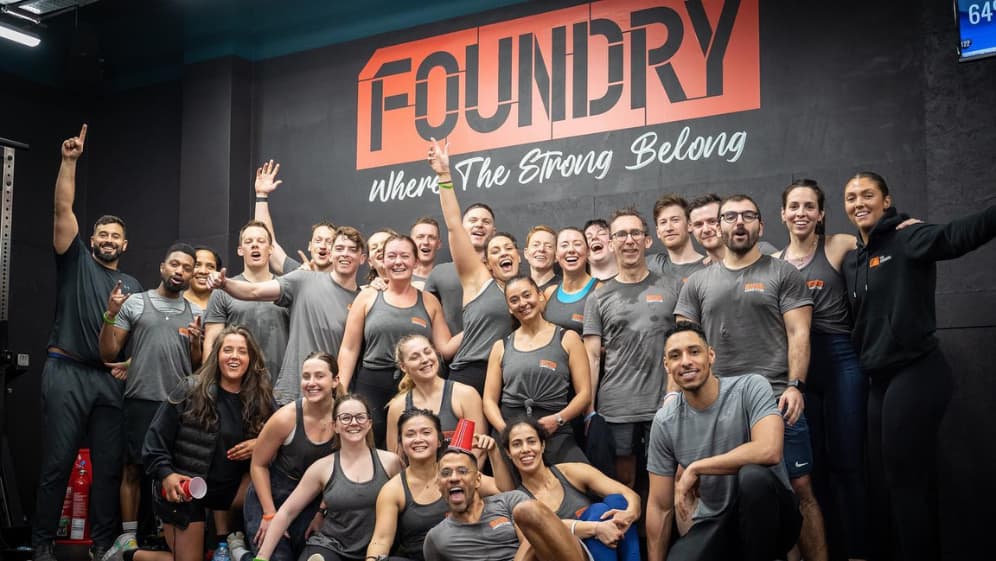
Categories
10 Body Myths Debunked
In the fitness world, it is easy to get lost in a sea of advice and misinformation. With conflicting ideas and fitness trends constantly surfacing, many people unknowingly hold outdated or incorrect beliefs about nutrition, exercise, and health. We shed light on some of the most common body myths, offering clarity to help you make better choices for your fitness journey.
“Fat makes you fat”
Contrary to popular belief, fat is not the enemy. Good quality fats are essential for health and should always be part of your diet. Fats have been demonised due to their calorie density, with nine calories per gram. However, they are crucial if you want a well-rounded diet and a healthy body. From supporting brain function to aiding hormone production, good fats, such as those found in avocados, nuts, and oily fish, are vital for optimal health. Rather than avoiding fat, focusing on quality and moderation is better.
“You have to do cardio to lose weight”
While cardio often gets credited as the gold standard for weight loss, it’s not the be-all and end-all. Lean muscle mass is critical for getting and staying lean. Excessive cardio neither helps build nor maintain muscle mass,” he explains. Resistance training, combined with a balanced diet, is a far more effective approach for many people. Building lean muscle through weight training helps burn fat and enhances metabolism, making keeping the weight off long-term easier.
“Women shouldn’t lift weights”
Many women shy away from weightlifting, fearing becoming overly muscular or “bulky.” When done in extreme amounts and combined with a diet that provides a significant excess of calories, something women rarely do, lifting weights can trigger noticeable muscle gain. But for most women, following a typical weightlifting routine with a balanced diet won’t result in bulking up. Lifting weights can help you burn fat, tone up, and feel stronger without adding unwanted bulk.
“Carbs are the enemy”
Carbohydrates have had their fair criticism, especially with the rise of low-carb diets. Carbs are an important part of the diet and a major player in cognitive function, mood, energy levels, and overall well-being. Prolonged low-carb diets can negatively impact mental clarity, sleep, mood, and even your ability to lose fat. In addition, such diets often lack fibre, essential for digestive health and long-term wellbeing. The key is choosing complex carbohydrates, like whole grains, sweet potatoes, and vegetables, which provide steady energy without spiking blood sugar levels.
“I need supplements to be healthy”
Supplements often seem like a quick fix for boosting health, but Putting supplements before a good diet will not work. Most people only need a multivitamin, probiotic, vitamin D, and omega-3 fish oil if their diet is well-rounded. He also recommends getting tested before taking extra supplements to ensure your body needs them. Instead of relying on pills, it’s more beneficial to focus on consuming a variety of whole foods to meet your nutritional needs.
“I can eat as many ‘clean’ foods as I want”
The notion that you can consume unlimited amounts of ‘clean’ or ‘healthy’ foods is another common misconception. Just because a food is considered ‘good’ or ‘clean’ doesn’t mean you can eat it in unlimited quantities. Foods like nuts, avocados, and fruits are nutrient-dense but still contain calories that can add up quickly if you’re not mindful of portion sizes. Even healthy foods can lead to weight gain if overeaten, so it’s important to approach all foods with balance and moderation.
“Protein is good, so more must be better”
Protein is often hailed as the star nutrient for building muscle and losing fat, but don’t overdo it. Getting your recommended daily allowance of protein is crucial to health, but consuming it in excessive quantities is unnecessary. The trend of high-protein diets is a response to the fear of carbohydrates, with people turning to protein to replace lost calories. However, if you are following a balanced nutritional programme, there’s no need to overconsume protein. Too much of it can strain your kidneys and offer no additional muscle growth or fat loss benefits.
“More exercise equals better results”
It’s easy to think that more exercise will yield faster results, but this isn’t true. Your body needs time to recover and rebuild. Overtraining can lead to burnout, injury, and a decrease in performance. Rather than focusing on quantity, prioritise the quality of your workouts. Combining strength training, mobility exercises, and adequate rest will help you see better results than pushing yourself to exhaustion daily.
“You can target fat loss in specific areas”
The idea that you can lose fat from specific areas of your body, such as doing endless crunches for a flat stomach, is a myth. Spot reduction doesn’t work. Fat loss happens throughout the body when you’re in a calorie deficit, not just in the areas you train the most. A well-rounded exercise programme that includes full-body workouts and a balanced diet is the most effective way to reduce body fat and achieve a leaner physique.
“Age is a barrier to fitness”
Finally, many believe that getting older means their fitness levels will decline. While it’s true that we naturally lose muscle mass as we age, regular exercise can counteract this process. Age is not a barrier to fitness—it’s never too late to start. With proper strength training and mobility exercises, you can continue building muscle, maintaining flexibility, and improving your overall health well into your later years.
The Takeaway
In a world where fitness myths are rampant, it’s important to stay informed and base your choices on facts rather than fads. Fat doesn’t make you fat; weightlifting won’t bulk women up, and you don’t need to cut out carbs to lose weight. The truth is that a balanced approach—combining resistance training, healthy fats, smart carbohydrates, and rest—is the most sustainable path to long-term fitness and well-being.
At Foundry Gym, we believe in empowering people with the knowledge they need to make informed decisions about their health. By debunking these common myths, we hope to help you achieve your fitness goals in a smarter, healthier way.
We help our members with a nutritional programme that works for them, if you’re struggling, give us a shout at our East London personal training gyms or try out our training sessions and we’ll help you work out a plan that suits you.
Related Articles
- Why You Should Focus on Full Body Workouts
- Bodyweight Training – You Are Your Own Gym
- Spring Cleanse Your Body – Part 1
- 10 Fitness Myths and The Truth
- The Core Training Myth

